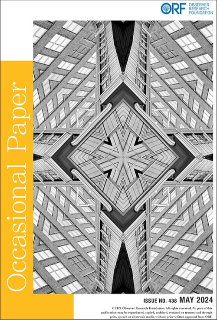AFTER visiting Siachen, where over 120 Pakistani soldiers were killed after getting entrapped by an avalanche, General Ashfaq Parvez Kayani said something very different for the first time in many years. Kayani expressed the view that all issues between India and Pakistan should be resolved to ensure co-existence which would allow the two countries to focus on development and public welfare. Speaking to reporters at Skardu, Kayani explained that the issue of Siachen was to be resolved through negotiations. Former Pakistan Premier Nawaz Sharif, too, agreed with the view when he said that Pakistan should take the initiative for resolving the Siachen issue. Kayani’s reference to peaceful co-existence and resolution of all outstanding issues through dialogue was something remarkable and showed a welcome change in the thinking of the Pakistan Army.
Soon Pakistan Prime Minister Yousuf Raza Gilani also supported the opinion expressed by Kayani. Addressing a conference on the role of NGOs in the development of Pakistan at Islamabad on April 23, Gilani said the era of wars was over and Pakistan was ready to resolve through talks all the outstanding issues with India, including the Kashmir dispute and terrorism. He referred to the hand of friendship extended by Indian Prime Minister Manmohan Singh and said that Pakistan was ready to reciprocate it fully.
Gilani pointed out that the basic issues, apart from terrorism and extremism, which plagued Pakistan were illiteracy and poverty. Pakistan President Zardari’s pilgrimage to India on April 8 was to seek the blessings of the Khwaja of Ajmer. Yet Dr Manmohan Singh hosted a lunch when they also held talks on the outstanding issues involing the two countries. Nawaz Sharif praised Zardari for his initiative in meeting the Indian Prime Minister and trying to normalise his country’s relations with India.
Pakistan encouraged the opening of a second trade gate at the Wagah-Attari border with a network of motorways constructed around Lahore from Wagah to reach the south-bound national highway and the north and west-bound motorways to Peshawar and Faisalabad, the textile capital of Pakistan’s Punjab. Pakistan has also completed an eight-lane highway to the Ganda Singh Wala border near Kasur, 40 km southeast of Lahore and across the Sutlej to Ferozepur in India.
Pakistanis are happy over the offer of Dr Manmohan Singh to supply 5000 MW of power to energy-starved Punjab in Pakistan. It is a matter of achievement for President Zardari.
Elections are due in Pakistan next year. The Pakistan Army has shown its willingness to be on the same page with President Zardari.
The million-dollar bounty announced on the head of Lashkar-e-Toiba (LeT) chief Hafiz Saeed coincidentally came on the eve of Zardari’s visit to Delhi and Ajmer. This has convinced Zardari on the need to be strict in tackling the issue of terrorism. Hillary Clinton had said earlier that Pakistan’s policy of keeping snakes in the backyard and expecting them to bite only the enemies chosen by Pakistan but not themeselves should come to Zardari as a reminder. Whether he would take the initiative in taking strong action against Hafiz Saeed and his LeT jihadis remains to be seen. It was agreed during the Zardari-Manmohan Singh meeting on April 8 that secondary-level meetings should be held as scheduled to tackle all the outstanding issues, including terrorism.
Meanwhile, Pakistan is going ahead with seeking assistance from India in various fields of expertise. Pakistan Railway officials will hold a meeting with officers of Indian Railways for technical assistance when Pakistan would make formal requests for building what is described as a dozen "decent" railway systems in Pakistan. Pakistan is also seeking a large number of broad gauge diesel locomotives.
India has expressed its willingness to extend technical assistance for improving infrastructure in Pakistan. Sooner or later Pakistan is bound to realise that holding on to terrorism as an instrument of State policy would not be in its interests as Pakistan would be the real sufferers in the long run.
External Affairs Minister SM Krishna made a sue motu statement in the Lok Sabha on April 25 when he said that Dr Manmohan Singh accepted the invitation of President Asif Zardari, extended at the lunch hosted by Dr Singh on April 8, to visit Pakistan at an appropriate time. Diplomatic channels will be used to work out mutually acceptable dates and make substantive preparations for the visit. Krishna said that during the 40-minute meeting with Zardari, Dr Singh told him that Hafiz Saeed’s activities apparently had the support of the security agencies of Pakistan which did not augur well for the relations between the two countries. Dr Singh emphasised that there was need for taking firm action to curb terrorism and bring the perpetrators of the 2008 Mumbai terror attacks to justice.
Krishna also told the Lok Sabha that the two leaders discussed developments in the region which included Afghanistan and the cooperation between India and Afghanistan for economic development. It may be recalled that India and Afghanistan signed a strategic pact in October 2011 when President Hamid Karzai made an official visit to New Delhi. Pakistan is playing a dubious game in its relations with Afghanistan which was exposed by a series of attacks carried out in Afghanistan by the Taliban militants of the Haqqani faction, which is apparently enjoying the patronage of the ISI .
The United States has announced that though in 2014 its armed forces will be withdrawn from Afghanistan, it will retain a sizeable number of troops for training purposes. Economic assistance would also be continued to Afghanistan indefinitely.
These days Imran Khan, leader of the Tehreek-e-Insaf Party of Pakistan, is drawing huge crowds for his rallies. He hopes to win the next election. In his various speeches, Khan has said that India and Pakistan should have cordial relations as is the case between the US and Canada.
There is also further news on the prospects of improvement in the economic ties between India and Pakistan. It may be recalled that in May 2010, there was a significant trade conference which led to the joint peace initiative by India and Pakistan for the improvement of trade relations between the two countries.
The same organisers have planned a second Indo-Pak economic conference on May 7 and 8 in Lahore in collaboration with the CII and the Pakistan Business Council. The conference will be presided over by CII President Adi Godrej of India and inaugurated by the Pakistan Prime Minister. It is hoped the meeting of trade and industry leaders from India and Pakistan would lead to substantial progress in their economic relations.
(The writer is an Advisor to Observer Research Foundation)
Courtesy: The Tribune
The views expressed above belong to the author(s). ORF research and analyses now available on Telegram! Click here to access our curated content — blogs, longforms and interviews.




 PREV
PREV

